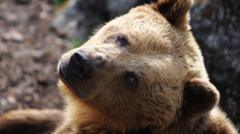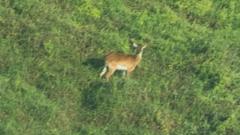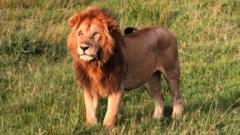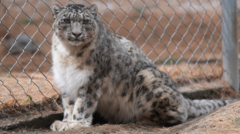Amid increasing bear-human encounters, Slovakia's government plans to authorize the sale of meat from culled brown bears, despite the species being protected under EU law. Critics argue that overhunting will not resolve the issue and call for more effective preventive measures.
Slovakia Moves Forward with Controversial Sale of Brown Bear Meat

Slovakia Moves Forward with Controversial Sale of Brown Bear Meat
The Slovak government has approved the sale of meat from culled brown bears, sparking criticism from conservationists amid rising encounters with wildlife.
Slovakia has taken a contentious step forward by approving the sale of brown bear meat, a species that holds protected status under EU regulations. Following a cabinet decision, officials are set to cull approximately 350 bears, about a quarter of the nation’s population, citing a rise in dangerous encounters, including a recent fatality. While the government argues that selling the culled meat will ensure it is not wasted, environmentalists and members of the opposition vehemently oppose the plan.
Under the new regulations expected to kick in next week, meat from bears killed under the government-sanctioned cull will be available for sale, provided all legal and hygiene standards are adhered to. State Minister Filip Kuffa defended the initiative, stating, "bear meat is edible," and criticized previous practices of disposing of the carcasses.
However, the decision has ignited protests from conservationists and critics alike, including dissenters in the European Parliament. The brown bear is classified as “near threatened” by the World Conservation Union, raising alarms regarding the sustainability of such a culling strategy. Michal Wiezik, an ecologist and MEP from the opposition Progressive Slovakia party, called the government's actions “absurd,” arguing that existing preventive measures had been insufficiently explored.
The debate intensified following a series of bear attacks in Slovakia, where the number has surged, prompting Prime Minister Robert Fico to declare the necessity of culling as a public safety measure. Critics, including Miroslava Abelova of Greenpeace Slovakia, labeled the government’s decision as “reckless,” suggesting other strategies for conflict mitigation should be prioritized.
Bear meat consumption is relatively rare in Europe, typically considered a delicacy in specific regions. Strict hunting regulations and conservation laws generally limit the availability of such meat, and there are strict health measures due to potential health risks, like Trichinella infection, which requires thorough testing before sale.
As Slovakia pushes ahead with its controversial plan, the future of brown bears in the region hangs in the balance, stirring vital discussions on wildlife management, conservation ethics, and the role of government in addressing human-wildlife conflicts.




















